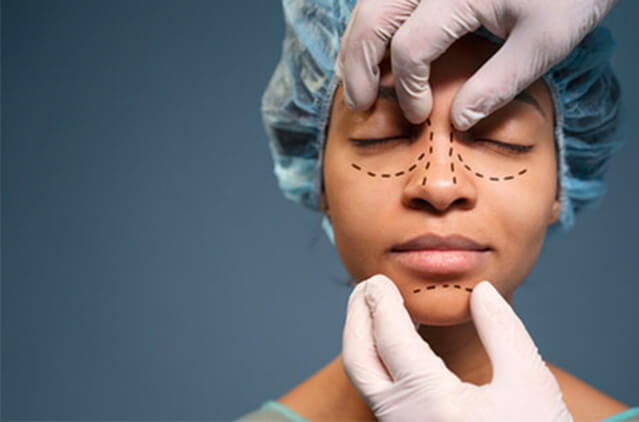
Plastic surgeons are medical practitioners who specialise in plastic surgery. Plastic surgery is the branch of medicine that specialises in the restoration, reconstruction, and alteration of the human body. Plastic surgeons are surgeons who have received advanced training And have gathered the skills and expertise required to perform complex surgeries that enhance the functionality as well as the aesthetic appearance of a body part. Read along to know more about plastic surgeons, the training they undergo, the various surgeries they perform, and their roles and responsibilities.
What Is Plastic Surgery And How Do You Become A Plastic Surgeon?
Plastic surgery is derived from the Greek word plastikos, which means ‘to mould’ or ‘to give shape to’. Plastic surgery does precisely that. It is a specialised branch of medicine that focuses on the repair, reconstruction, and enhancement of the various parts of the body to improve their functionality and aesthetic appearance.
Plastic surgery, contrary to popular belief, does not include only cosmetic surgery. Surgeries to correct congenital deformities, traumatic injuries, and post-surgical restorations are also part of plastic surgery.
A plastic surgeon is a surgeon who specialises in plastic surgery. Plastic surgeons are doctors who receive specialised training to perform complex surgeries that involve aesthetic enhancements to intricate reconstructive surgeries.
The training to become a plastic surgeon begins with medical school. The first requirement to become a plastic surgeon is an MBBS degree. After graduating from medical school, plastic surgeons have to complete a postgraduate programme in general surgery followed by a specialisation in plastic surgery. Post this a board certification examination has to be cleared to finally become a practicing plastic surgeon.
What Are The Surgeries Performed By A Plastic Surgeon?
Plastic surgeons perform a wide variety of surgeries. From reconstruction and restoration to aesthetic enhancement, many surgeries would require the skills and expertise of a plastic surgeon.
Reconstructive Surgeries – These are surgeries aimed at restoring the functionality of body parts that are impacted by trauma, infections, medical disorders, congenital anomalies, and, tumours. Some of the common examples of reconstructive surgery include-
- Breast reconstruction- Performed after a mastectomy for breast cancer, this surgery helps reconstruct the shape and symmetry of the breasts.
- Cleft Lip/Palate surgery- In newborns having a cleft lip or cleft palate, reconstructive surgery helps to improve feeding, speech, and facial aesthetics.
- Skin grafting- This surgery is done to cover wounds and damaged skin with healthy skin obtained from a different part of the body. Burns and traumatic wound victims are benefitted from skin grafting.
- Hand surgeries- These are intricate reconstructive surgeries done to treat congenital deformities, trauma injuries, carpal tunnel syndrome, and nerve injuries.
Cosmetic Surgeries– This part of plastic surgery deals with the aesthetic aspect of the body. Here the focus is not only on restoring the functionality of the affected part but to also make it aesthetically pleasing. While not completely medical, these types of surgeries help a person regain lost self-confidence and create body positivity.
- Rhinoplasty– Also known as a nose job, this surgery realigns the nose to match it with the facial features and also corrects breathing difficulties.
- Face lift– This surgery gives you a youthful appearance by working on the signs of ageing like fine lines, wrinkles, and sagging.
- Breast Augmentation– In this procedure, by using various techniques, the breast size and shape can be altered per your desires.
- Liposuction– This is a surgical procedure that removes unwanted fat from your body to make you look toned and chiselled.
- Hair transplant– This procedure adds fullness and volume to your hair by transplanting hair from other parts of your body onto the head.
Roles And Responsibilities Of Plastic Surgeons
Plastic surgeons deal with the medical as well as aesthetic aspects of a case. This makes their roles and responsibilities very significant. They have to be involved at every step of the process, from consultation to the procedure right up until the follow-up.
- Consultation
The role of a plastic surgeon starts right at the time of the first consultation. The surgeon has to assess the patient’s condition, listen and understand the desires and needs, and assess the overall medical history. The most suitable plan has to be devised by the plastic surgeon and explained to the patient, including all the pros and cons. The plastic surgeon also has to counsel the patient on keeping realistic expectations.
- Treatment Planning
Based on the clinical assessment and medical history, the plastic surgeon chalks out a comprehensive plan. This plan is explained to the patient in detail, encompassing the procedure, the potential risks, side-effects (both immediate and long term), the post-operative care, etc. All this is done to help the patient make an informed decision before opting for surgery.
- Surgical Techniques
Plastic surgeons undergo extensive training to gain expertise to perform various complex surgeries. But as the field of medicine keeps growing, and new advancements are being made every day, it is the plastic surgeon’s responsibility to stay updated on all the latest techniques. The plastic surgeon participates in workshops and medical seminars to stay up to date with the advancements.
- Team Coordination
The plastic surgeon has to work with a team of healthcare professionals that includes anesthesiologists, nurses, paramedical staff, and other surgeons as per the case. The plastic surgeon must have proper communication and coordinate the team to function cohesively as a single unit.
Are Plastic Surgeons The Same As Cosmetic Surgeons?
Cosmetics surgery and reconstructive surgery are sub-specialties of plastic surgery. Reconstructive surgery works to restore or enhance the lost functionality of a body part. Cosmetic surgery is more concerned with the enhancement of the aesthetic appearance.
All plastic surgeons undergo training in plastic surgery as part of their learning. Additional fellowship courses in cosmetic surgeries enable a plastic surgeon to become a surgeon who specialises only in cosmetic procedures, known as a cosmetic surgeon.
Plastic surgeons play a vital role in reconstruction, restoring, and enhancing the functionality and appearance of various parts of the body. Through their vast training, they gain the skills and expertise to perform complex surgeries. Plastic surgeons help patients lead an optimum life by working on their dysfunctional body parts and restoring their functionality. Cosmetic concerns that have a severe impact on mental health are also addressed by plastic surgeons. With the help of the various cosmetic surgeries available, plastic surgeon helps people gain back their lost self-confidence and guides them back to a happy, successful life.



